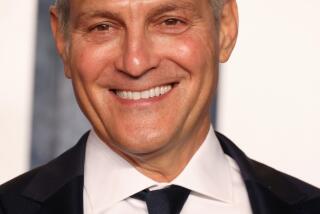From Long Hair to High Finance
- Share via
MINNEAPOLIS — After growing up in a middle-class family in Wheaton, Md., Al Checchi attended Amherst College in Massachusetts. The long-haired liberal arts student professed to be “anti-business” and considered becoming a lawyer or a journalist.
He was befriended by Gary Wilson, an economic consultant working for Checchi’s uncle, who challenged Checchi’s bias against business by offering him a job. “He told me that if you are against something, you ought to know something about it,” Checchi said.
Wilson became his mentor, schooling him on the intricacies of corporate finance, mergers and turnarounds. Checchi showed an aptitude for high finance and soon was on his way to Harvard University, where he earned a master’s degree in business administration in 1974.
By then Wilson had become treasurer of Marriott Corp. and hired the energetic Checchi to help devise a new financial strategy for the hotel company, a onetime Wall Street high-flier whose growth had stalled.
The two proposed that instead of Marriott owning the hotels it built, the company should sell them to investors, lease them back and collect fees for managing them. This freed up funds for new hotels while providing a steady cash flow and limiting Marriott’s risk.
Marriott took off like a rocket. It went from building 400 hotel rooms a year to more than 10,000, and its growth rate surged to 20% a year.
“The success of our company came from the strategy Checchi and Wilson came up with,” said Marriott Chairman J.W. Marriott.
Checchi earned a reputation as a financial whiz kid who could concoct clever ways to structure deals and find deep-pocket investors. In 1982, he was persuaded to join the enigmatic Bass brothers of Fort Worth by their financial wunderkind, Richard Rainwater.
Hoping to get rich quick, Checchi found a good home. The Bass brothers controlled an immense oil and gas fortune and were intent on enlarging it in the 1980s.
One deal Checchi brought them was for Kentron, a small telecommunications and data-processing company. The Basses acquired the company for $10 million, putting up just $1,000. Two years later, they sold Kentron for more than $40 million.
Richard Blum, husband of Sen. Dianne Feinstein and a businessman who has frequently invested with Checchi, wrote Checchi a note afterward that said: “Al, good deal. How did you raise the $1,000?”
Checchi’s most important deal for the Basses was financing the $270-million acquisition of Arvida Corp., a real estate company. He then negotiated the swap of Arvida for a 25% interest in Disney after the entertainment firm came under attack from corporate raiders in 1984.
Michael Eisner and Frank Wells, Disney’s new managers, agreed to retain Checchi as a financial and strategic advisor. Among Checchi’s suggestions: Raise theme park prices, build more park hotels and lease back parks abroad.
Eisner, who would later refer to Checchi as the “Steven Spielberg of finance,” asked him to join Disney as chief financial officer. Instead, Checchi recommended his mentor Wilson, who took the job.
Checchi walked away in 1986 with a $50-million profit from his investment in Disney. Independently wealthy, he moved to California, his wife’s native state, where he lives in a Beverly Hills mansion once owned by actor Sidney Poitier.
More to Read
Inside the business of entertainment
The Wide Shot brings you news, analysis and insights on everything from streaming wars to production — and what it all means for the future.
You may occasionally receive promotional content from the Los Angeles Times.










